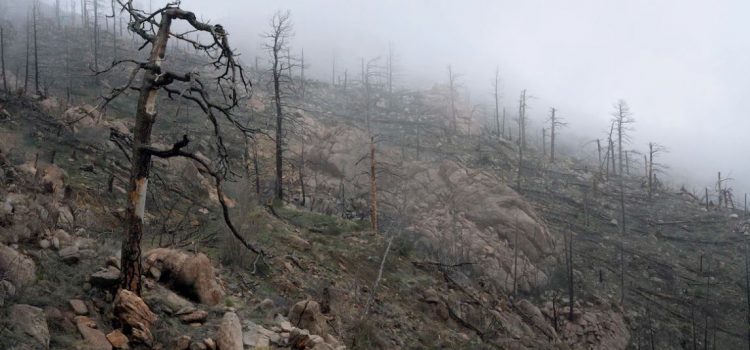
This is a free excerpt from one of Shortform’s Articles. We give you all the important information you need to know about current events and more.
Don't miss out on the whole story. Sign up for a free trial here .
What’s causing the record-breaking heat around the globe? Is it man-made or natural?
The ten warmest years in recorded history all happened since 2010, and 2023 is on track to beat the record once again. Despite this, there are still many climate change skeptics.
Here’s a look at the causes of the recent extreme heat and why the skeptics are wrong.
Extreme Heat Has Climate Experts Worried
The global average temperature hit a record high on July 3, 2023. The next day matched that record, and July 5 broke it. This is the latest in a seemingly endless series of warnings about the impacts of climate change, but experts urge people not to become fatigued or jaded about climate change—scientists keep raising more alarms because global conditions keep getting worse.
An unusually hot week—even an unusually hot year—wouldn’t be cause for alarm on its own. However, these record-high temperatures are part of a long-term, worldwide trend that has many environmental experts extremely worried. The 10 warmest years on record have all happened since 2010, with the years from 2014 to 2022 accounting for nine of those; now 2023 is on track to be the warmest yet. In other words: Earth is getting measurably hotter, and it’s happening quickly.
El Niño Conditions Are Exacerbating Climate Change
Temperatures this summer have been especially unforgiving thanks in part to El Niño, a climate pattern where the surface waters of the Pacific Ocean become unusually warm. This, in turn, causes much of the US and Canada to be hotter and drier than usual, contributing to the record-breaking global average temperatures recorded in July.
Addressing Climate Skepticism
Despite the record-breaking heat year after year, many people remain unconvinced either that climate change is happening, or that humans are responsible for it and can therefore mitigate it.
On the contrary, there’s an overwhelming amount of evidence that climate change is real and caused by human activity; 97% of working climate scientists agree on this. To give that figure some context, the scientific consensus about climate change is nearly as strong as the scientific consensus about evolution.
- It’s not that hot in my community / last winter was colder than usual, so global warming can’t be real.
This argument conflates climate with weather—in other words, it confuses short-term conditions with long-term conditions. It’s true that there are still cold days and cold seasons; that’s why climate scientists place so much emphasis on trends in the temperature. Even accounting for the occasional cold snap, Earth’s average temperature has been trending upward at an alarming rate.
- Climate alarmism is politically and/or economically motivated.
In essence, this argument says that climate change is a scam designed to help liberal politicians get votes or help “green” industries get sales. However, for that to be true, nearly every climate scientist and major news outlet—not to mention the majority of politicians—in the entire world would have to be in on the scam.
- Climate change is a natural process.
This argument acknowledges climate change, but it denies that humans are responsible for it. It’s true that Earth’s climate has changed before, sometimes drastically (for instance, during ice ages). However, natural phenomena can’t explain the current warming trend—it’s much too fast and much too extreme compared to preindustrial climate shifts.
- Climate change isn’t worth the cost of fixing.
Rather than denying climate change or human responsibility for it, some simply argue that fighting climate change is too expensive. The UN estimate that the world will need to spend between $1.6 trillion and $3.8 trillion annually to fix it seems to support this argument. However, the costs of not fighting climate change will be far higher in the long run.
These are only a few of the arguments commonly put forward by climate skeptics; there are many others. However, the evidence is overwhelmingly in favor of anthropogenic climate change.
What’s Next?
If these warming trends continue, scientists project that environmental conditions will keep getting worse. That will mean even more heat-related deaths, stronger storms, coastal flooding, and worsening drought conditions across much of the world.
To avoid the worst effects of climate change, it’s estimated that we need to keep the average global temperature within 1.5°C (2.7°F) of the preindustrial average. To accomplish that, we’ll need to reduce greenhouse gas emissions by over 40% by the end of the decade. This is the objective of the 2015 Paris Climate Agreement; it’s an ambitious goal, but one that nearly every nation in the world has agreed to work together to meet.

Want to fast-track your learning? With Shortform, you’ll gain insights you won't find anywhere else .
Here's what you’ll get when you sign up for Shortform :
- Complicated ideas explained in simple and concise ways
- Smart analysis that connects what you’re reading to other key concepts
- Writing with zero fluff because we know how important your time is






